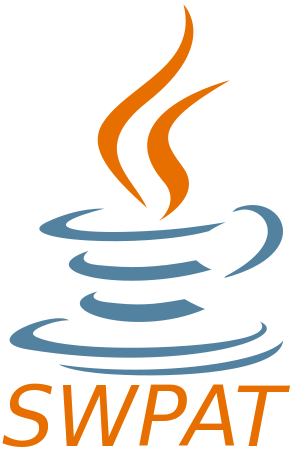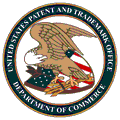02.19.13
Posted in America, Patents at 3:19 pm by Dr. Roy Schestowitz

Summary: The bureaucracy facilitated by corporations causes tremendous damage to the economy, still
The other day at The Register, Matt Asay, whose writing skills are rich, published an article about intellectual monopolies and it said something insightful while citing John Lennon:
While I’ve never thought John Lennon’s Imagine offered a particularly useful prescription for peace, I am starting to wonder if it might not suggest something better than free and open-source software.
When Lennon sings that if we can just “imagine no possessions” we’ll end up with “all the people sharing all the world,” he’s almost certainly wrong, humankind being humankind. Maybe he never read Animal Farm. But given the outsized success free and open-source software have had, perhaps it’s time to take them a step further.
What we found antithetical to sharing was the USPTO, which is the institutional source of so many problems. We will increasingly target this institution, which is run by large companies for these companies.The USPTO was run by an IBM veteran, to whom software patents are acceptable. And as covered here many times before, OIN, a creation of an IBM veteran, has no way to defend against trolls. It makes it anything but ideal, but patents are passed from the cartel of IBM to companies like Google and HTC which defend Android from litigation. Here is a new report about the OIN:
The expanding reach of the IBM-supported Open Invention Network reflects the pervasiveness of the Linux operating system.
Open Invention Network is not the solution. It does nothing to stop patent trolls.
A troll which we recently covered is getting some new coverage also amid racketeering charges:
Innovatio IP Ventures is one of the most controversial patent trolls to emerge in the past few years. Like the oft-condemned Lodsys, Innovatio is asking for relatively small payouts from a large number of targets. But Innovatio’s campaign is even broader than other hated trolls like Lodsys: the company claims nothing less than a patent claim on using Wi-Fi.
In 2011, Innovatio started suing chain hotels and even local coffee shops, saying they infringed 17 patents that cover the use of Wi-Fi. Innovatio sued hundreds of businesses and has reportedly sent out more than 8,000 letters demanding license fees, generally ranging from $2,300 to $5,000. Instead of going after companies that make routers like Cisco, Innovatio targeted small businesses that simply use Wi-Fi, an increasingly common pattern.
Microsoft Facebook is being sued by a troll again. The British press says: “The claim for unspecified royalties, issued in federal court in Virginia by a holding company called Rembrandt Social Media, alleges that Facebook used technology developed by Jos Van Der Meer over a decade ago.” The MSBBC covered it too
The EFF, which wants to end software patents, wrote about a troll which pretends to be a real company in this post:
Patent trolls — companies that assert patents as a business model instead of creating products — have been in the news lately. This is hardly surprising, given that troll lawsuits now make up the majority of new patent cases. And the litigation is only the tip of the iceberg: patent trolls send out hundreds of demand letters for each suit filed in court. At EFF, we have been following this issue closely and are working hard to bring reform to fix the patent mess.
The recent news is not all bad. Just last month, for instance, online retailer Newegg won a long and hard-fought battle against a particularly egregious troll. To its credit, Newegg has a policy of never settling with patent trolls. So, after Soverain Software LLC, a company that sells no products but claims to own online “shopping cart” technology filed suit, Newegg took the case all the way to trial in the Eastern District of Texas. It lost that trial — but it lost for a strange reason: the judge refused to let Newegg argue to the jury that the patent was obvious (if a party can prove that a patent was obvious at the time it was granted, a court should invalidate the patent).
All those trolls are a sure way to drive innovation out of the country. Let’s hope that US politicians will recognise this and take progressive action. █
Permalink
 Send this to a friend
Send this to a friend
02.10.13
Posted in America, Patents at 11:24 am by Dr. Roy Schestowitz
“Patent monopolies are believed to drive innovation but they actually impede the pace of science and innovation, Stiglitz said. The current “patent thicket,” in which anyone who writes a successful software programme is sued for alleged patent infringement, highlights the current IP system’s failure to encourage innovation, he said.”
–IP Watch on Professor Joseph Stiglitz
Summary: Signs of massive backlash against the US patent system as patent trolls spread collective damage
TThe previous post spoke about the low standards of the USPTO. Something has got to change. Zach Carter has this amazing news, adding to Nobel celebrities (in economics [1, 2]) who slam the US patent system. He writes:
Patent Reform, System Should Be Abolished, Fed Economists Say
Two economists at the St. Louis Federal Reserve published a paper arguing to abolish the American patent system, saying there’s “no evidence” patents improve productivity and that they have a “negative” effect on “innovation.”
The research suggests that President Barack Obama’s 2011 patent reform legislation — one of only a handful of major bills to clear Congress with bipartisan support in recent years — was wrong-headed.
A popular political site berates the system for the trolls it harbours and money has just been granted for a law professor to study the subject. To quote: “Santa Clara Law’s Professor Colleen Chien has received a $35,000 research grant from the New America Foundation to expand her work relating to “Start-ups and Trolls”. This grant will fund an expanded survey to determine the impacts of Patent Assertion Entities (PAEs) on the operations, growth, and innovation of startups. This version of the survey will also explore trends in patent purchasing, strategies for responding, and the market for “troll solution” providers.”
Watch what RIM has had to say on the subject after its very existence was compromised by trolls.
‘$30B’ spent on patent battles
Heins also spoke on Tuesday at Toronto’s Empire Club, making a point to discuss how legal battles over patents, especially in the United States, have been detrimental to the mobile technology industry.
“This past year, our sector spent almost $30 billion in courtrooms — particularly in U.S. courtrooms — defending cases against non-practicing entities — or ‘patent trolls’ — who produce nothing,” he said in prepared remarks.
“Patent trolls hold genuine innovators hostage and patents have become weapons in an international technology arms race. This is crazy. We have to shift our resources from litigation back to innovation, investment and job creation.”
BlackBerry holds over 3,400 U.S. patents, making it one of the top patent-holders in the country.
RIM is actually not a patent aggressor. It’s more like Google in this regard and in a later post we will show that Google now seeks to abolish software patents. █
“IP is often compared to physical property rights but knowledge is fundamentally different.”
–IP Watch on Professor Joseph Stiglitz
Permalink
 Send this to a friend
Send this to a friend
Posted in America, Patents at 11:17 am by Dr. Roy Schestowitz

Summary: The latest new examples which show that the US patent system is not hinged on reality; a call for action
The US patent system, protected by the USPTO and SCOTUS as validator, coercing others through the courts and ITC, serves as protectionism for corporations at the expense of people and to the benefit of patent lawyers.
SCOTUS Blog bloggers talk about gene patenting, one of the most controversial types of patents. Rather then seek a ban, a symposium is organised and one can bet it will be stacked by lawyers. This system is rigged. Watch USPTO patent #8,370,951, granted February 5th, 2013. It is titled “Securing the U.S.A” and it is not a satire. A Seattle blog tells us that lending goods online is also a granted patent now, assigned to Amazon along with this ‘milkman’ patent. USPTO quickly becomes a source of comedy, but it’s not funny to those who get sued. There are some more new reports that show laughable patents and the EFF reportedly fights an infamous patent on podcasting:
The Electronic Frontier Foundation, a digital civil liberties group, is declaring war on a company claiming it made the podcast possible.
EFF said Tuesday it was organizing companies that face threats from patent trolls – a derogatory term for companies that earn most of their money from patent licensing or litigation.
The EFF no longer busts just one patent at a time. It now runs a well-funded campaign to eradicate software patents as a whole (in the US).
New Zealand is meanwhile resisting attempts to expand US patent law — a subject on which Dr. Glyn Moody had this to say:
Let’s hope Mr Foss listens, and New Zealand programmers can continue to focus on creating great software, rather than needing to look anxiously over their shoulders all the time for fear that they might accidentally infringe on a software patent that has been granted to some deep-pocketed software company or – even worse – a predatory patent troll.
We must destroy software patents in the US or else they might spread elsewhere, e.g. through trans-Atlantic and trans-Pacific ‘free’ ‘trade’ treaties. There is need for global action because US policy usually become universal or global policy, shows history. The clock is ticking and patent lawyers fight against developers’ interests. █
Permalink
 Send this to a friend
Send this to a friend
02.05.13
Posted in America, Patents at 4:08 pm by Dr. Roy Schestowitz
Protectionists’ imperialism

Summary: Unitary patent and the ever-increasing patent imperialism noted while the US patent system announces intention to coerce countries overseas
B
logs of patent lawyers celebrate patents, but they are not alone; plutocrat press Bloomberg, which has been promoting “intellectual property” nonsense for quite some time (we called it out on it many times), has an entire blog with 4 people currently dedicated to advancing software patents, with people like this guy calling himself “an inventor listed on seven U.S. patents.” Bloomberg makes it more apparent what it stands for. It’s for corporations, not people. Globalists want multinationals to have unlimited powers without borders.
Over in New Zealand, which experienced US lobbying similar to what we had experienced in the EU, a patent profiteer from AJ Park [1, 2, 3, 4, 5] says that “Pitney Bowes denied printing patent”. To quote: “The Examiner considered this a close case as merely printing something in general is insignificant post solution activity. Ignoring the printing aspect leaves you with only an abstract idea which is not patentable.
“Pitney Bowes argued that these claims are directed to more than an abstract idea. These claims automatically select an advertisement and then actually print that advertisement on a mail piece.
“The Board agreed with Pitney Bowes that the whole invention is automatically putting the appropriate advertisement on an actual mail piece. In this context, the Board found this to be more than an abstract concept and hence patentable subject matter.”
But lawyers in NZ, like this writer’s employer, lobby to make abstract ideas patentable in NZ. This risks spreading patent trolls from the United States, as one writer in NZ warns:
Incentives to troll the system are also likely to be high. Many software companies when hit with a lawsuit are likely to settle out of court in order to avoid legal costs and the negative publicity/share price impacts associated with a legal bun-fight. Given the money likely to be involved, it is possible that many arcane yet widely significant aspects of application coding could be patented with a view to making a fast buck.
Once again the long term loser is New Zealand whilst multinationals grow fat at our expense.
We’ve all seen the insanity that is the US patent system, and how it led to those shameful Apple VS. Samsung courtroom brawls. The big question is how badly do we want something similar for New Zealand?
There are trolls too, hitting both Android and iOS (Samsung and Apple), the most dominant mobile operating systems. Owing to free and open sharing, my Android application was recently picked up by another British developer (my application is Free software) who wants to try to port it to iOS. But with more Lodsys lawsuits, as shown here, even application developers are not safe anymore. Companies like Lodsys go after the small developers too. Some European companies already got hit by these trolls, barring them from distribution in the US (which in the case of global app stores may mean overall ban).
Groklaw takes note of a”Notice of Public Hearing USPTO: Asks for Comments on International Harmonization of Patent Law” and this reminds us of Cablegate lessons on global patent system, as covered here many times before. Here it is:
Notice of Public Hearing and Request for Comments on Matters Related to the Harmonization of Substantive Patent Law
The United States Patent and Trademark Office (USPTO) is seeking stakeholder input on certain matters relating to international harmonization of substantive patent law, in particular, information and views on: (1) The grace period; (2) publication of applications; (3) the treatment of conflicting applications and (4) prior user rights. To assist in gathering this information, the USPTO is holding a public hearing at which interested members of the public are invited to testify on the issues outlined above. In addition, interested members of the public are encouraged to complete an electronic questionnaire relating to the above-identified issues. Separate written comments may be provided through electronic mail, though completion of the questionnaire is strongly preferred in lieu of separate comments. Additional details may be found in the supplementary information section of this notice.
So basically the US wants to do to the world what Brussels did to Europe. The FSFE expresses concerns about what the unitary patent can do to Europe in its latest newsletter. It’s the top issue:
We want software as a tool to help society. Software patents are a threat to this as they add legal and financial risks to software development and distribution by giving the patent holders legal power to completely prohibit software developers from using patented ideas.
In December the European Parliament has adopted a proposal to create a patent with unitary effect for Europe (henceforth the “unitary patent”). In adopting the proposal, Members of the European Parliament (MEPs) chose to disregard intense criticism of the proposal from all sides of the debate. Already before the vote patent lawyers, legal experts, SMEs and civil society groups such as FFII as well as FSFE all voiced their concerns to MEPs. With the adoption, the European Parliament has given up part of its power to shape Europe’s innovation policy. That power will instead fall to the European Patent Office (EPO), which has a track record of awarding monopoly powers on the widest possible range of subject matter.
According to the European Parliament’s website, “the international agreement creating a unified patent court will enter into force on 1 January 2014 or after thirteen contracting states ratify it, provided that UK, France and Germany are among them. With your ongoing help, FSFE will continue to inform companies and politicians about the danger of software patents.
The FSFE’s head very recently noted that “Amazon patents trade in “used” digital objects http://ur1.ca/cpaq3 The next one-click?” Amazon is hostile towards GNU/Linux 1, 2, 3] (at last as a free platform) and it also pushed its software patents into Europe.
The next stage is for the USPTO to merge in a sense with the EPO, making a patent globalisation that Microsoft lobbied for out in the open. We must oppose it like many opposed ACTA in Europe. Judging by passage for the unitary patent, we are not strong enough yet. █
Permalink
 Send this to a friend
Send this to a friend
01.19.13
Posted in America, Europe, Patents at 5:56 am by Dr. Roy Schestowitz
![]()
Summary: A roundup of patent news from Europe, the US, and some other places which suddenly let software patents be
Hartmut Pilch, the habitually-involved founder of the FFII, writes in his blog about the group's latest action which strives to tackle software patents in Europe one patent at a time, as a matter of making a point or precedence perhaps.
Meanwhile, the patent has been revoked. The Opposition Division revoked it for the second time. In 2007 it had already revoked this patent, which had been granted in 2003 and filed in 1998. However the Technical Board of Appeal (TBA) revived the patent and remitted it to the Opposition Division, alleging that the Opposition Division had failed to prove that the feature of simplification to a “single action” (one click) was not novel. In today’s hearing, the Opposition Division considered this feature novel. Moreover it also considered novel the process of ordering a gift for a friend without fully disclosing his address. However the Opposition Division doubted, whether the combination of these two features could be considered an “inventive step”.
Defining what makes a software patent is a legitimate debate, unlike what makes “good” software patents. Amazon is doing badly based on grounds of triviality, prior art, and lack of software patenting in the case of Europe. It ought to make this patent quite easy a target for the FFII.
Meanwhile in the United States, the USPTO enjoys protections from corporations and government (virtually the same under corporocracy) and one notable lawyer who is a product of this system advocates yet more patent monopolies, saying that “Patents Boost American Prosperity” (maybe for lawyers). The idea that academia, for instance, would stop innovating if no patents were offered is totally ridiculous. Masnick’s Web site is dismantling the arguments one by one, concluding:
Yes, we agree that innovation holds the key to future prosperity. The problem is that there is no evidence that the patent system actually increases that innovation, and a ridiculous amount of evidence that it does exactly the opposite. It retards innovation, diverting money from actual innovations that hit the market, to lawyers. The costs associated with the patent system far outweigh any benefits. Could you craft a functioning patent system? Perhaps, but today’s system is not it, and if Judge Michel ever spent time with actual innovators who were the victims of patent trolling, he might learn something. But, you know, that would offend his patent lawyer and patent troll buddies.
More patents boosters, again in the form of patent lawyers, debate the scope of patents:
The chart above shows the percentage of published non-provisional patent applications that include the term “means for” at least once in the claimset. Although not the only way of doing so, “means for” is traditionally used by patent attorneys to invoke the doctrine known as means-plus-function claiming allowed under 35 U.S.C. 112p6. [Soon to be renumbered 35 U.S.C. 112(f)]. As the chart shows, the percentage of applications that include at least one means-plus-function term is well under 10% and seemingly in continued decline. A decade ago, about 1/4 of all applications included this type of claim.
At the legal site Groklaw, Pamela Jones responds with: “So topic one the USPTO asks us to address covers “well under 10%” of the applications for patents. Of course.”
Well, the USPTO likes to focus on rigged debates which hardly address the real questions, as we have explained before. Those are easy to find. It’s either a stacked panel, a push polling-like tactic (dancing around distraction and disinformation), or both.
We are rather troubled to see patents on software getting granted in countries that fought them: South Africa, Israel, and New Zealand. See this press release:
Publishing Data Management announced today that five international patents have been granted for the software engine that drives ProofPlus, its trademarked Financial Compliance and Electronic Document system. Patents have been issued in Israel, Russia, New Zealand, Singapore and South Africa and are pending in China, Europe and additional countries. This announcement underscores the significant commitment a company must undertake to protect its inventive efforts in today’s global marketplace.
Europe is not a “country” actually, not even with the unitary patent [1, 2]. Either way, let us hope that multinationals’ pressure (clients of patents lawyers) to make software patentable won’t spread outside of the United States where, in my humble opinion, corporations already have far too much power over the authorities. Imperialism by corporations never-endingly strives to expand for increased profit. It’s governments’ job to place boundaries and represent people, the digital majority █

“Geeks like to think that they can ignore politics, you can leave politics alone, but politics won’t leave you alone.”
–Richard Stallman
Permalink
 Send this to a friend
Send this to a friend
01.06.13
Posted in America, Patents at 8:14 am by Dr. Roy Schestowitz

Summary: Fake choice offered by the USPTO in another meaningless public consultation
The farcical USPTO deals with “swpat [shorthand for software patents] and functional claims,” says one FFII person about this USPTO hearing. Henrion, the FFII’s president, says in response that the “USPTO already set the agenda here, substantive patent law is off topic.” He is right.
As we noted the other day, quantity over quality is the implicit motto at the Office. They get more money for lowering the bar. So many comments were posted regarding reports like this one, probably in vain (the USPTO is an echo chamber, with strong resistance to facts and public will):
In an announcement yesterday in the Federal Register the US Patent and Trademark Office invited the public to participate in a “software partnership” next month to “enhance the quality of software-related patents.”
Their very existence is a problem, not their “quality”. Neil McAllister, who now writes for the British press, says that “US Patent Office seeks public input on software patents’ future”. To quote the body of his article: “The agency says it would like input from software developers and the public as to what level of detail and specificity should be required in a software patent application to meet the definition of a “quality” patent – that is, one that clearly states what is covered.”
“This is a good example of rigged debates, where the option of banning software patents does not even exist (akin to Republicans vs. Democrats debates where the important issues are totally off the table).”This is a good example of rigged debates, where the option of banning software patents does not even exist (akin to Republicans vs. Democrats debates where the important issues are totally off the table). Pamela Jones wrote about this too. Yes, legal folks too realise this and regarding a piece from Julie Samuels (at a pro-patents site), Pamela Jones writes: “This is very sensible except for one thing, and it’s like a pimple on the nose. Algorithms are mathematics. Period. Mathematics are not supposed to be patentable subject matter. Thus, this suggestion works against helping the courts to understand that simple and unchangeable truth, dividing the question instead into “good” patentable mathematics versus “bad” and unpatentable mathematics. And over time, you will regret endorsing patentable math.”
Here is a US company arguing against the notion that abstract ideas and principles should be patentable:
San Francisco online real estate company Trulia has filed its initial response to Zillow’s patent lawsuit, arguing that the case should be dismissed because the business method in question — Zillow’s online home valuation tool known as the Zestimate — is not patentable.
How about design and shape patents as they are described in here:
Stockton says design patents also pack more of a damages punch than regular patents because, if they are infringed, a court must award damages based on the value of the whole invention — not just a patented feature.
It looks like sooner or later companies and people will rebel against the USPTO, whose main function became to serve trolls, lawyers, and monopolists (multinationals). Remember the rounded rectangles which Apple claims to ‘own’? How does monopolising it improve anything? Appearance should not be patentable. Sometimes even the multinationals suffer (turf wars), as seen here in the news:
While lots of folks have been declaring the 3D movie obsession dead for a while now, the studios still love 3D movies. In this age where they’re looking for ways to create formulaic premium experiences that get people to go out to the theaters, they seem to have jumped on the 3D bandwagon full force. Of course, as with all things Hollywood embraces too strongly, that’s now leading to backlash, mainly because rather than do it well and where it makes sense, the big studios are basically just looking to add 3D to whatever they can and hope people will pay the premium. It’s a short term strategy, but Hollywood execs aren’t exactly known for their long term outlooks.
…Or even the benefit to the public. The bottom line is, patents make society far worse off.
Linus Torvalds once said: “People disagree with me. I just ignore them.” Patent lawyers, including the USPTO, are pretty much the same. So it’s time to get more assertive in fighting them. They’re not listening anyway. They deflect criticism using various means and PR instruments; the latest hearing is one such instrument. █
Permalink
 Send this to a friend
Send this to a friend
01.04.13
Posted in America, Asia, Patents at 4:36 pm by Dr. Roy Schestowitz

Summary: Amid loss of edge in the innovative industries, a turn to patents is seen for PR and protectionism
The patent war is bound to get interesting now that the US loses its lead. The Economist says: “China’s patent office received more applications than any other country’s in 2011, according to the World Intellectual Property Organisation, a UN body which follows 125 patent offices.”
Suffice to say, those numbers don’t means much, but they are used for vanity purposes. The US will try to pass off more ideas as patentable. The USPTO is trying to manufacture consent for software patents right now:
There is a notice in the Federal Register that the USPTO would like to form a partership with the software community to figure out how to “enhance” the quality of software patents.
The more patents the USPTO approves, the more “innovation” it will claim. Here is the government’s bad stance and a new case study against software patents:
Why Software Patents Should Be Banned: A Case Study
Joe Mullin provides us with the latest in the patent troll wars. Last year, a guy named Steven Vicinanza, the founder of BlueWave Computing, got a letter from Project Paperless LLC telling him that he needed to pay $1,000 per employee because he uses networked scanners in his business:
That was Mother Jones.
Over at Bloomberg (plutocrats), the lawyers, or the 1% who are parasitical, have their say. To quote: “Clearly I didn’t ask enough patent attorneys for impressions of what’s going on in their corner of the cyberlaw world. There is a lot going on there. Complaints about how the patent system is impeding innovation, complaints about the complainers about the patent system, a new unified patent system in the European Union and a new court to keep things unified (that’s a lot of uniformity!), a new way of evaluating patents on business methods ushered in by the America Invents Act, and another big case in Federal Circuit involving a the patentability of computer software.”
Don’t ask patent lawyers. Ask real stake holders, people who actually produce something. █
Permalink
 Send this to a friend
Send this to a friend
12.31.12
Posted in America, Patents at 4:41 am by Dr. Roy Schestowitz

 Summary: Some new stories which show what a sordid mess the US patent system became over the decades
Summary: Some new stories which show what a sordid mess the US patent system became over the decades
In the US, “even lawyers think patent system is broken,” writes Glyn Moody regarding this article from Groklaw. We wrote a lot about the USPTO (headed by a former manager at a software patents booster*) and so did Timothy B. Lee, who identifies more pertinent parts of the problem. To quote:
People have radically different views of the patent system. Critics see it as an unmitigated disaster, while many in the patent bar don’t understand what all the fuss is about. But it’s rare for prominent advocates of these contrasting perspectives to engage each other directly.
But that happened on Wednesday in a teleconference debate hosted by the Federalist Society. Defending the status quo was Judge Paul Michel. Until 2010, Michel was the chief judge of the Federal Circuit Court of Appeals, a post that made him the nation’s top patent judge. He debated Judge Richard Posner, a Chicago-area appeals court judge who threw out a patent lawsuit between Apple and Motorola earlier this year, complaining that the patent system had descended into “chaos.”
The other day we wrote about the EFF’s latest endeavour against the US patent system (it worries about innovation) — an important effort that got backing from rich people, as covered in FOSS blogs too:
If you happen to be familiar with billionaire Mark Cuban’s famous blog, then you’ve probably listened to his pontifications about the broken U.S. patent system many times. Now, Cuban, along with game developer Markus “Notch” Persson, is putting his money where his mouth is. The Electronic Frontier Foundation (EFF) has announced a half-million dollar donation from Cuban and Persson to boost the foundation’s efforts to reform the patent system. The donation also creates a newly named position at the foundation: “The Mark Cuban Chair to Eliminate Stupid Patents.”
Here is more on that [1, 2, 3, 4, 5, 6, 7, 8]. Reports were numerous.
Over at Wired, the stacked panel continues this Xmas, this time with an Assistant Professor of Law. The lawyers and career law professors don't offer solutions which make lawyers obsolete. It’s lawsuits like this new one which give them business at the expense of those who have real products. To quote: “Netflix has been hit by a patent infringement lawsuit by Open TV, now a subsidiary of Nagra, the Switzerland-based conditional access company, part of the Kudelski Group. It has not said what the patents are, but the filings at the US District Court for the District of Delaware show that they are all software patents.”
How about this new $1.17 billion patent lawsuit? Guess who the cost is transferred to? This is yet another instrument for passing wealth from the vast majority to the oppressive rich minority.
What “law” people suggest is not enough. It’s not enough to stop patent trolls, either. We need to end all software patents, everywhere. We need to name those who stand in our way. █
___
* IBM typically tries to hide it by keeping rather silent. Bloggers seem surprised by IBM’s position and Pogson writes: “They proceed from begging the question to blatant error in logic. I hope this is just the vomit of one of their lawyers and not the philosophy of the corporation… otherwise, IBM is doomed to sue and be sued forever.” This is not the correct assessment. IBM uses software patents to empower the cartel it leads, allowing it to sell artificially overpriced products. When it comes to patent policy, IBM is our enemy.
Permalink
 Send this to a friend
Send this to a friend
« Previous Page — « Previous entries « Previous Page · Next Page » Next entries » — Next Page »








 Summary: Some new stories which show what a sordid mess the US patent system became over the decades
Summary: Some new stories which show what a sordid mess the US patent system became over the decades















 Content is available under CC-BY-SA
Content is available under CC-BY-SA